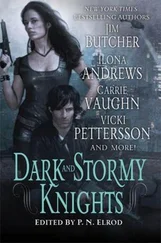All that remained in the house to eat was the pinto beans. They were eating them, it seemed, three times a day. Jeanine longed for the smell of baking bread, real yeast bread made with white flour. She lifted the pan of corn bread from the oven and sat it on a flour sack on the table beside the beans.
“Supper!” she said, and thought, They have to.
Bea gathered up Albert and came to the table. He was a handsome cat, even with his poor skewed nose. His eyes were outlined with black and he was dressed in an extravagant suit of stripes. He had to be dusted off every day with a flour sack when he came in. His green eyes appeared over the edge of the table from Bea’s lap, like a periscope arising from a deep feline sea. He stared over his broken nose at Bea’s plate of beans and searched for bits of bacon. He indicated with his tender paw which bit he would like, and Bea drew it to him on her fork. Then she reached over and turned on the radio.
Elizabeth didn’t eat. She just sat there and held the notice.
“I’ve got to ask for some kind of arrangement,” she said.
Jeanine wiped up her plate. “Can we turn that radio off, little sister?”
“No, don’t, I like it. It’s One Man’s Family.”
“I hate the way they talk,” said Jeanine.
“But they all sound so normal,” said Bea. “I just love One Man’s Family. They all sound so normal.”
“They are not normal. They are rich and they talk like they’re from England. Save the battery.”
Jeanine wanted to be kind and speak sweetly to Bea, like her mother, but now with the notice she herself was in deep need of somebody being kind to her. She had thought they would be safe here. No rent. None of them had thought about the county taxes. Unpaid over the years, stacking up. And there was Bea with her endless diary or journal, in which all their troubles were made into a chronicle, one misery strung out into another. Bea was only thirteen but she seemed to prefer sitting up at night and reading back through her diary and all her descriptions of family trouble like an old woman. Nothing could ever be fixed, no matter how hard Jeanine tried. It all just broke again but there was no other way but to lay hands on the pieces and fit them together, make them work.
“I’m going to town tomorrow,” said Elizabeth. “Do we have the gas?”
“Yes,” said Jeanine. “Let me drive in. I want to look around the farmers’ market. I could make us some clothes if I can find good secondhand ones.” Her sisters and mother nodded in silence. “Don’t you think?” Jeanine lifted her hand into the silence. “Everybody that thinks so raise your hand.” She smiled brightly. “We can go to the poorhouse in double-ruffled sleeves!”
“That would be great,” said Mayme. She slapped down a magazine in front of Jeanine. “But I don’t know what for.” She was trying hard to be angry but tears sparkled in her eyes, and finally she folded up her letter from Conroe, in which Robert Faringham said that he felt they would be better apart, given the scandal about her father, and he hoped she would meet someone else more worthy of her. She lifted the stove lid and dropped the letter into the fire.
“And don’t wear jeans,” said Elizabeth. She could not remember when young women first started wearing men’s Levi’s around the home but they had. It was one more confusing event that had crept up on her along with adultery and widowhood and the financial collapse of the United States and these two large gangly girls who were her older daughters.
Jeanine put on her jacket to go feed and water Smoky. She took the fashion magazine with her. She carried two buckets at a time and filled the trough and then poured out the cracked corn into a hubcap. She read while he ate so she could get the hubcap away from him when he was done. Otherwise he would take it in his teeth and bang dents into it as if it were a toy, and it was the only spare hubcap they had. Smoky Joe bent his head over the fence to her, solitary and curious.
“Want to see the fall fashions of ’37?” She held out the magazine and Smoky took it in his teeth and tossed it up and down, the spectrally thin women with slinky draped dresses and shawl collars torn out page by page. They sat together in silence while the evening shadows flooded the valley and he made grinding noises with his great horse teeth. The light was draining away westward, and as it poured away the clear hard stars opened up one by one like rain lilies.
THE NEXT MORNING Jeanine ran out in the early cold to pour some gas into the tank. She lugged out the ten-gallon jerrican. Her breath smoked. The eternal wind carved its transparent way through the limbs of the oak overhead, and all around her in the Central Texas farm and ranch country the faint yellow lights of coal-oil lanterns shone from remote kitchen windows.
And in all these kitchens the whisper of radio voices spoke in staticky tones to men pulling on heavy lace-up boots with tangled strings and to women breaking eggs into hot frying pans. They listened to the Early Birds from WFAA out of Dallas and to the songs of Karl the Kowhand. And in all the barns and pastures, animals lifted their heads to listen, their eyes turned with deep and patient interest to the lighted windows. Scorpio stood in the deep blue sky and shone through the branches of the oak tree and lifted its brilliant, poisonous tail over all the valley of the Brazos River.
It was eight in the morning and already the teams and plows were out in the fields alongside the Brazos. Jeanine and her mother drove north toward Palo Pinto, the county seat, a small town that the railroad had passed by leaving it with only a courthouse and a jail. As she drove, the hills took on form under the wash of light like invisible writing under the pressure of fire. The frost was melted now except in the shadows of trees, and then the sun moved on and left ghost shadows of frost on the pasture grasses. Sheep and Angora goats wandered under stripped-down trees. Mules bent into their collars, and the plows tore down through the peanut fields and the cotton-row middles, a red spillage of earth on either side pouring away from the blade. The wind was dry and bitter and drove dust against the windshield.
The courthouse was a fine stone building that belonged to a much larger town but railroads go where they will.
The county tax collection office was on the first floor. People sat on chairs in the hall outside. They were all there for the same reason. The county could not collect most of its taxes and so it could not repair roads or improve schools. Counties were themselves applying for federal drought relief. Jeanine sat beside her mother and glanced at the faces around her. She wondered if she was related to any of these people, or if they had known her Tolliver grandparents. They all sat watching the door with its opaque glass and the black letters that said county tax office.
She went into the office with her mother when their name was called. She had to watch her mother’s humiliation as she asked for an extension. Saw her lay down a hundred dollars and say they would pay twenty a month.
“But the taxes will still accumulate,” said the man. “This is November and by January another fifty dollars will be due.”
“This is all I can do,” said Elizabeth.
“All right, Mrs. Stoddard,” he said. He wore a sweater vest and sleeve garters. “We don’t want to foreclose on you.” He lifted his hands in a helpless gesture. “What would we do with another farm?” Elizabeth said Yes, of course, as if she understood and stood resolutely waiting for what he would say next. “We would have to auction off the farm and I doubt that it would be bought by anybody other than a bank.” He snapped one of his sleeve garters. “And the banks ain’t looking too good.”
Читать дальше












